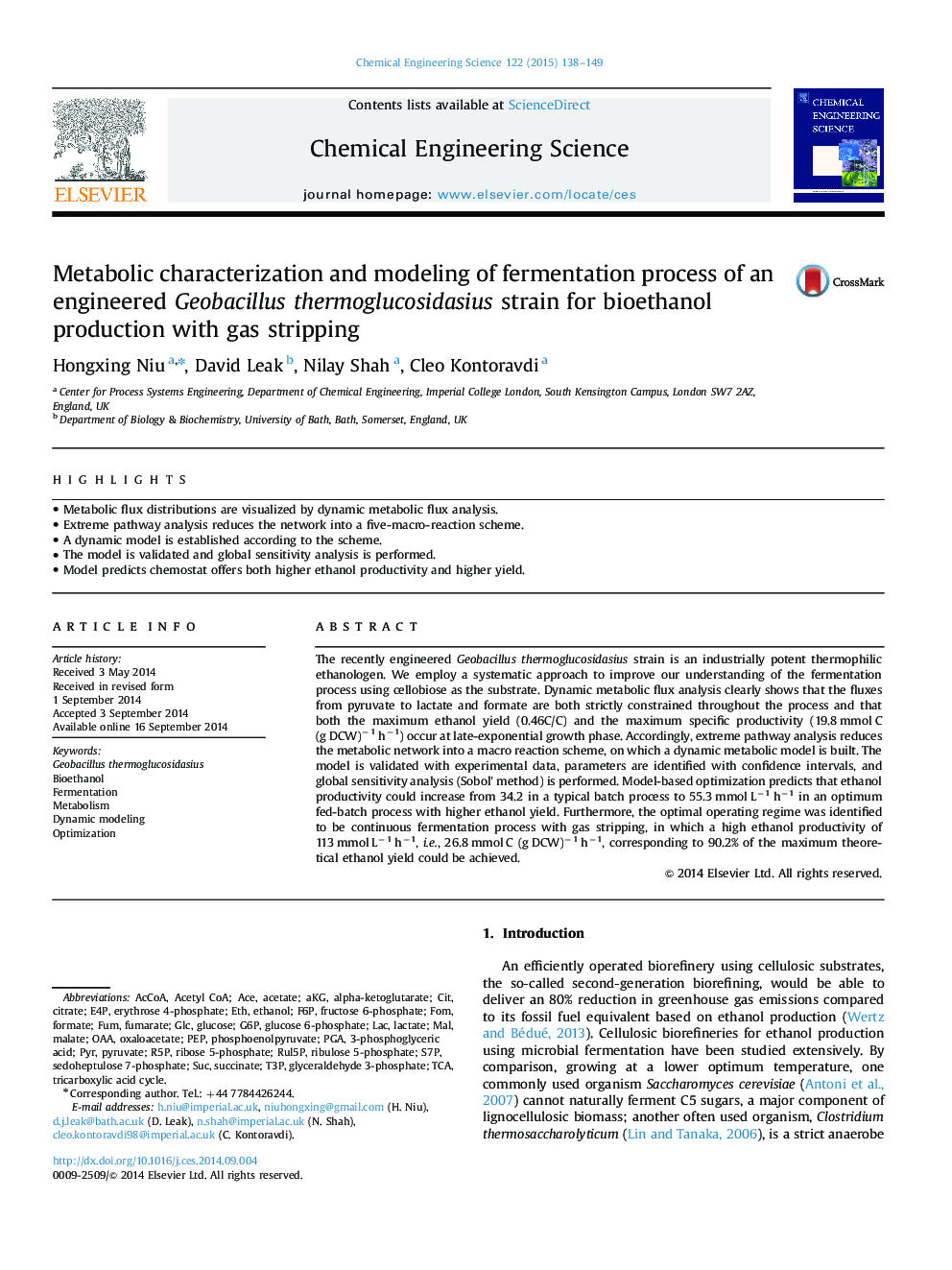| Article ID | Journal | Published Year | Pages | File Type |
|---|---|---|---|---|
| 6590705 | Chemical Engineering Science | 2015 | 12 Pages |
Abstract
The recently engineered Geobacillus thermoglucosidasius strain is an industrially potent thermophilic ethanologen. We employ a systematic approach to improve our understanding of the fermentation process using cellobiose as the substrate. Dynamic metabolic flux analysis clearly shows that the fluxes from pyruvate to lactate and formate are both strictly constrained throughout the process and that both the maximum ethanol yield (0.46C/C) and the maximum specific productivity (19.8 mmol C (g DCW)â1 hâ1) occur at late-exponential growth phase. Accordingly, extreme pathway analysis reduces the metabolic network into a macro reaction scheme, on which a dynamic metabolic model is built. The model is validated with experimental data, parameters are identified with confidence intervals, and global sensitivity analysis (Sobol׳ method) is performed. Model-based optimization predicts that ethanol productivity could increase from 34.2 in a typical batch process to 55.3 mmol Lâ1 hâ1 in an optimum fed-batch process with higher ethanol yield. Furthermore, the optimal operating regime was identified to be continuous fermentation process with gas stripping, in which a high ethanol productivity of 113 mmol Lâ1 hâ1, i.e., 26.8 mmol C (g DCW)â1 hâ1, corresponding to 90.2% of the maximum theoretical ethanol yield could be achieved.
Keywords
G6PaKGTCAMALT3PPEPAcCoACITGeobacillus thermoglucosidasiusACEPYRR5PS7POAASUCOxaloacetateF6PGlcFOME4PPGALACFUMalpha-ketoglutarateEthanolethErythrose 4-phosphateAcetateAcetyl CoA3-phosphoglyceric acidOptimizationBioethanolFermentationribose 5-phosphateribulose 5-phosphatesedoheptulose 7-phosphateSuccinateCitrateformateFructose 6-phosphatephosphoenolpyruvateFumarateLactatemalateMetabolismDynamic modelingPyruvateGlucoseGlucose 6-phosphateglyceraldehyde 3-phosphate
Related Topics
Physical Sciences and Engineering
Chemical Engineering
Chemical Engineering (General)
Authors
Hongxing Niu, David Leak, Nilay Shah, Cleo Kontoravdi,
